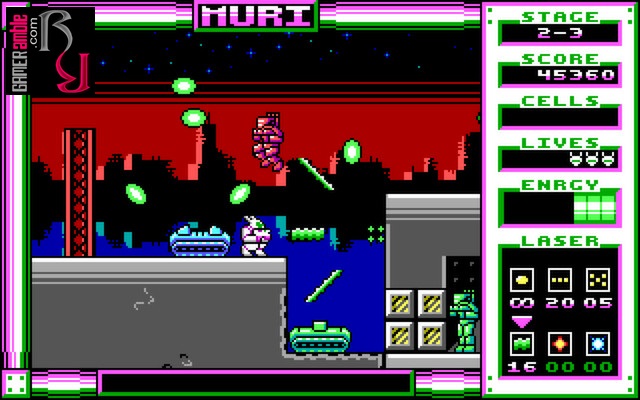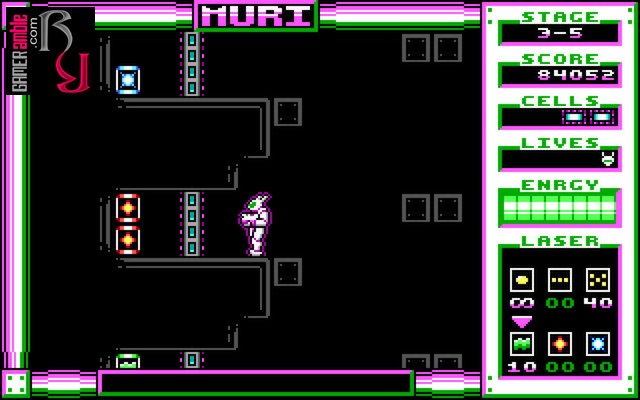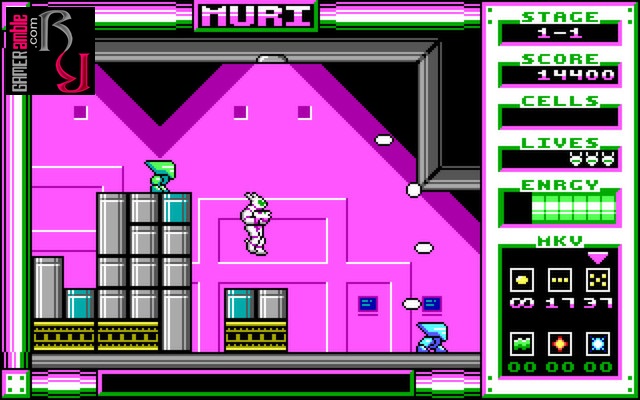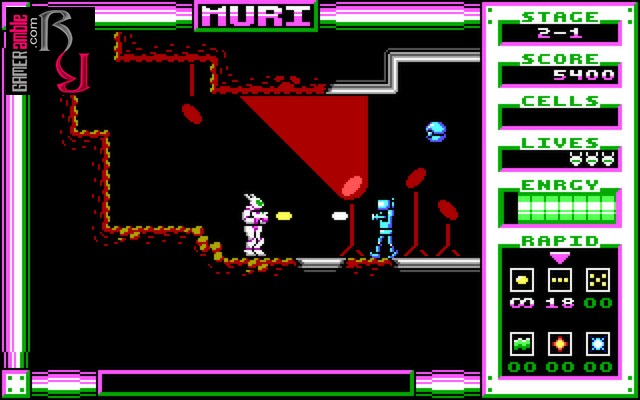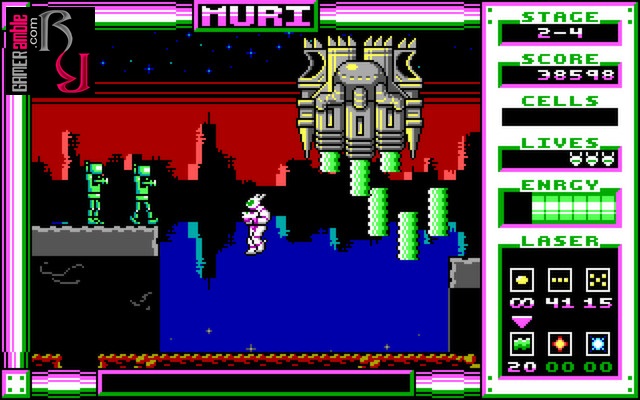MURI
Developer: Ludosity / Remar Games | Publisher: Ludosity | Release Date: 2013 | Genre: Action / Platformer | Website: Official Website | Purchase: Steam
Controversial research aboard a Martian space station leads to the creation of an armor suit with cataclysmic powers. When the two head scientists decide to equip their son Kojo with the suit, it understandably freaks out the people of Earth and Mars. Just as their robot armies mobilize to destroy the research station, the entire planet of Mars vanishes. This prompts Adwoa, Kojo’s mother, to set out in search of answers.
Retro “inspired” titles are a dime a dozen these days, but they all tend to focus on the console side of things. Lots of liberties are also usually taken with the term retro, so we were very interested in seeing what Muri had to offer. It is billed as a retro 80s experience and styled like one of the DOS-era shooters such as Commander Keen, Duke Nukem, and Bio Menace. As we spent countless hours playing these games on our trusty old 386 computers, booting up Muri felt like stepping into a time machine.
It is clear that the developers of Muri spent a lot of time studying classic DOS platform titles to recreate an authentic experience. The game uses the 16-color EGA palette for all the visuals and pulled it off so convincingly that we are sure many people will think Muri was released in the 1980s. Even the slightly jerky frame rate that characterized games of that era has been recreated, although there is an optional “Turbo” mode to smooth things out.
The game is set across four episodes with five levels each, although episode one is not Shareware as customary back in the day. The final level of each episode is always a climactic boss battle, and these encounters impressed us. While there is plenty of platform jumping, the focus is definitely on the shooting. Adwoa is equipped with a robotic suit and can access six different bullet types. The MKV fires bullets in a spread pattern while the laser bounces off surfaces, and the rockets have homing capabilities.
Holding down the fire button locks Adwoa into position, allowing you to jump and strafe while shooting in the same direction, which comes in handy during boss battles. Enemies consist of the usual assortment of robots and turrets, although some bio-weapons also make an appearance during later episodes. Apart from shooting foes, you can jump on their heads as well, but blasting them apart is much easier.
Although levels are linear, and you rarely need to backtrack, there are plenty of secret passages to uncover. These lead to collectibles such as floppy discs and DOS prompts that reward you with a higher score, energy canisters for health, or even extra lives. While you only need to find the exit to finish a level, collecting all the items and killing all the enemies contribute to your completion percentage. Besides blasting your enemies, several force fields usually bar your way. You need to destroy reactors to open these doors, but this is typically a matter of following the very visible power lines to their source.
The game emulates the PC speaker audio of the 80s quite well, and hearing these familiar-sounding effects was a nice blast of nostalgia. Unfortunately, it also means no background music, only sound effects during levels. The song played on the title screen is quite good, so we would have liked to hear more tunes. We played the game using a controller, but everything works just as well with the keyboard. It takes a while to get used to the jumping as your character’s jumping height depends on how long you keep down the button. There are four difficulty settings ranging from very easy to quite challenging, but unfortunately, there are no Steam achievements. There are, however, some nifty Steam trading cards to collect.
Muri is obviously aimed at players who can appreciate a solid retro title, but with such a low price tag, you don’t have much to lose by trying it out. The game can be tricky on higher difficulty levels, but it is never frustrating or unfair. There is no save option, but the episodes are short enough that this isn’t such a big issue. If you want an authentic retro platforming experience, right down to the “Press F1 for help” prompt at the bottom of the screen, you will definitely want to check out Muri.
*Review originally published January 2014.
System Requirements
- OS: Windows XP
- Processor: Pentium 4 @ 1,5 GHz
- Memory: 512 MB RAM
- DirectX: Version 9.0c
- Hard Drive: 50 MB available space


